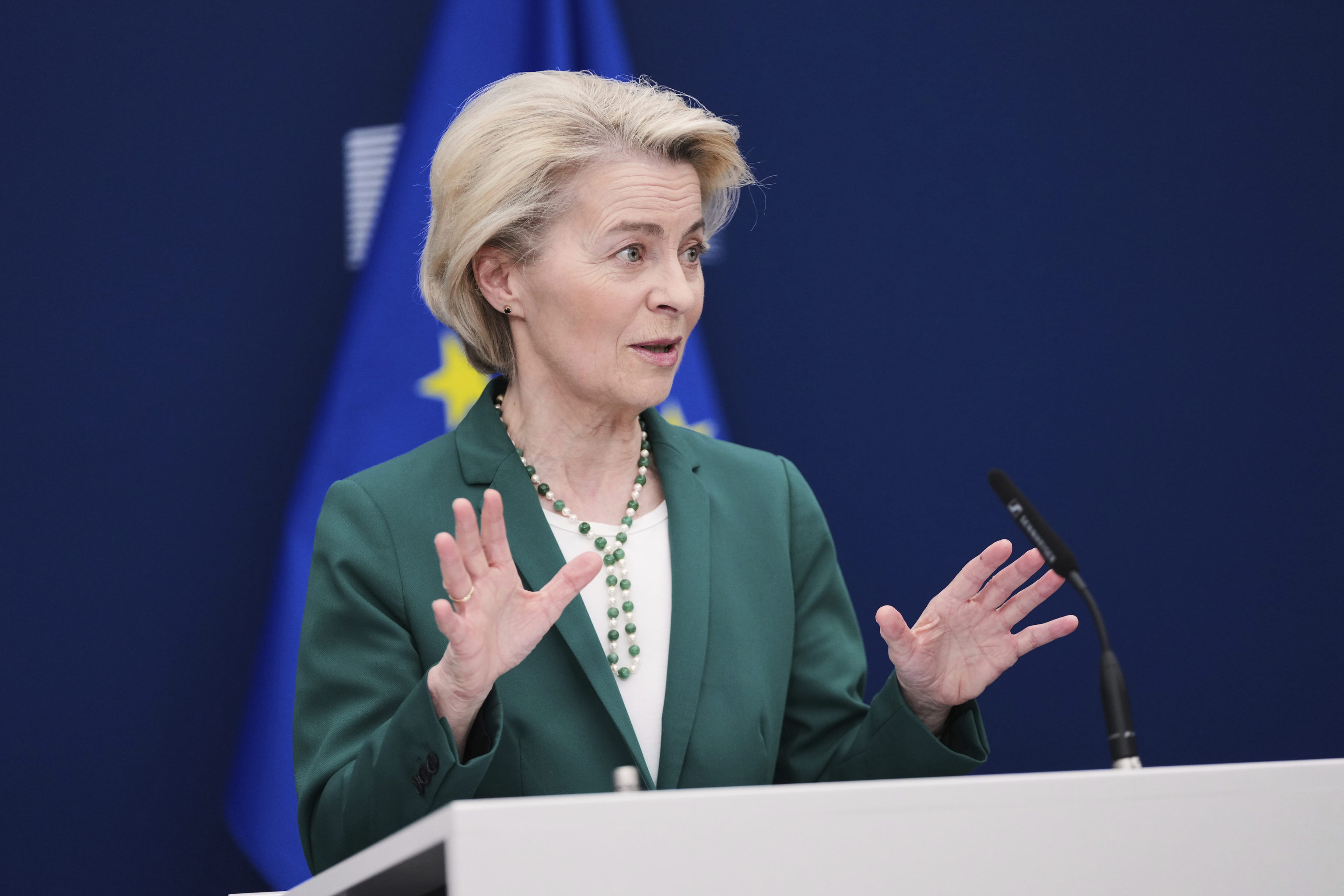Brussels has already prepared its response to the tariffs imposed by U.S. President Donald Trump on European steel and aluminum. The action must be ratified by member countries this Wednesday, and after the very likely approval by the EU capitals, it will deploy around 21,000 million euros in tariffs on U.S. products. This is just the European Union's first reaction, which insists on negotiating. But if there is no agreement, as it currently seems very likely, the Commission has also announced that there will be more.
The application of these tariffs will be divided into three phases, and in most cases, it involves applying a 25% tariff, although in some cases, fewer, it remains at 10%. The first part of the plan begins on the next April 15, when tariffs will start to be imposed on a revised list of products taken from 2018. That is, from the measures already applied in the previous Trump administration. EU sources estimate that this initial impact on U.S. exports will be 3,900 million euros.
Subsequently, on May 15, the EU will launch the bulk of its plan, as the punitive amount will increase to 13,000 million. And finally, on December 1, measures will be applied to products such as soybeans or almonds, completing the mentioned 21,000 million
Among the products selected by the EU are also diamonds, dental floss, refrigerators, glasses, or poultry. What is not included is bourbon, which was initially considered a sure inclusion by the Commission itself, with a 50% tariff. However, Trump threatened to impose a 200% counter-tariff on European wine and alcoholic beverages, causing nervousness, among others, in the wine industry.
France and Italy, where this sector has a significant weight, began to pressure to avoid this harsh punishment by the magnate. The Commission's response has been to remove the drink from its list of tariffs. The same has happened with more products, which is why the 26,000 million in tariffs initially planned have not been reached.
"It is premature to say (a figure), but it will not reach the level of 26,000 million euros because we have listened very carefully to our Member States and wanted to ensure that the burden is distributed fairly among all," explained the Commissioner for Trade, Maros Sefcovic, from Luxembourg on Monday after meeting with the 27 ministers.
Von der Leyen urges calm to China
While the Commission has accelerated in this response, its President, Ursula von der Leyen, yesterday called for calm and coordination to China in its possible response to the United States. In a telephone conversation with the country's Prime Minister, Li Qiang, the head of the European Commission emphasized "the vital importance of stability and predictability for the global economy," as reported by the EU.
"In response to the widespread disruption caused by U.S. tariffs, President Von der Leyen emphasized the responsibility of Europe and China, as two of the world's largest markets, to support a strong and reformed trading system, free, fair, and based on equal conditions," added Commission sources.
The conversation of the high-ranking German official took place just a few hours before the President of the Government, Pedro Sánchez, landed in Asia to visit Vietnam first and then China. In Brussels and among the member countries, this trip raises certain suspicions, but it is also noted that the shift towards the Chinese economy is increasingly necessary. In the Government, they have embraced China as the new "strategic partner" and argue that their "message" is "increasingly shared" among the rest of the countries, something that does not seem to be exactly the case.
Also yesterday, and returning to Von der Leyen, the President of the Commission met with representatives of the pharmaceutical industry. This sector is one of the Big Five, which are the areas that the EU has identified as most interesting to Trump. The top CEOs in this sector pointed out that U.S. tariffs provide "little incentive" to invest in the European Union and called for an immediate and significant shift in Europe.
"Unless Europe implements a rapid and radical policy change, it is increasingly likely that research, development, and manufacturing of pharmaceutical products will move towards the U.S.," the sector stated in a statement quoted by EFE. "Europe must seriously commit to investing in a world-class pharmaceutical ecosystem or, at best, risk being reduced to consuming innovation from other regions," they added.
